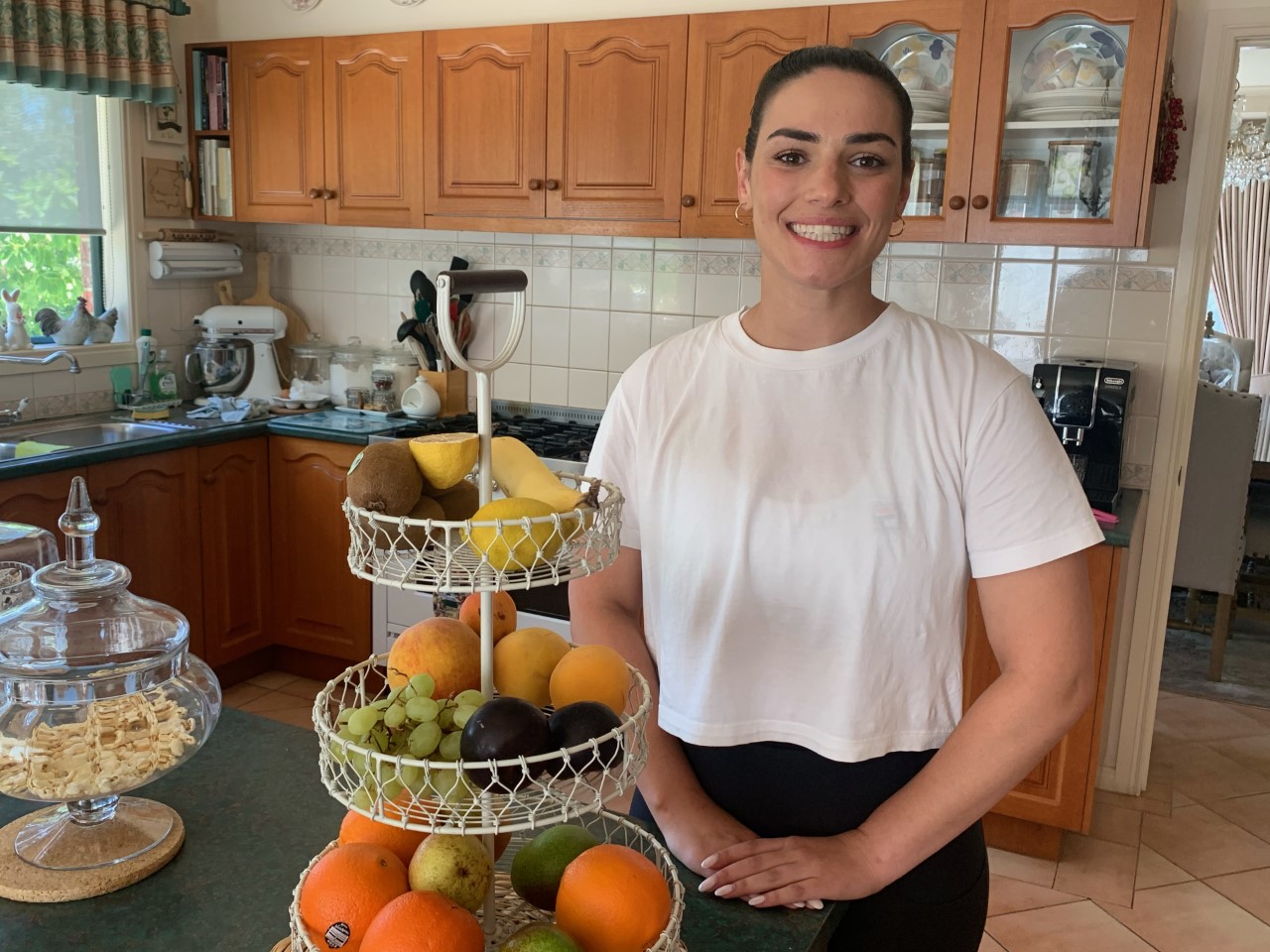First graduates of Swinburne’s Master of Dietetics thriving in the workforce

Stefania is “so glad” she enrolled in Swinburne’s Master of Dietetics
In summary
- Isabella Cameron, Stefania Basso and Chloe Vadiveloo are among the first cohort of graduates from the Master of Dietetics at Swinburne
- They are working in different areas of the dietetics industry and are enjoying using their skills to help people improve their health
- The Master of Dietetics provides students with access to state-of-the-art facilities and more than 100 days of industry-based placement
Isabella Cameron, Stefania Basso and Chloe Vadiveloo are among the first cohort of students to graduate from Swinburne’s Master of Dietetics. All have landed positions in the dietetics industry, aided by the workplace experiences they had during their degree.
Finding your passions
All students complete industry-based placements during the Master of Dietetics at institutions such as Austin Health, Nutrition Plus, Swan Hill and Western District Health, who provide invaluable learning experiences and advice.
Chloe says an important lesson her supervisor taught her was to welcome the opportunity to observe on placements. “At the time I just wanted to prove my independence and show that I was able to manage my own workload of patients, however having her remind me that as a student I was there to learn, really helped me step back and take advantage of all the experiences during placement.”
Now, Chloe is a Grade 1 Dietitian with Alfred Health, working at Caufield Hospital across the aged care and neuro-rehab wards. In the future, she is also looking at completing a PHD. “I feel excited knowing that I get to work in a space that is continuingly developing as research progresses, providing the opportunity for continued learning.”
Isabella is currently a Health Coach for Better Health Company, delivering Go4Fun and Better Health Online Programs to educate and positively influence children who are above a healthy weight for their age.
Lastly, Stefania is working with Nutrition Plus, who offer fertility, pregnancy and infant workshops and personalised nutrition consultations. She consults with clients, completes literature reviews and manages their social media accounts.

Chloe is enjoying working in a field that allows her to keep learning
A future of possibilities
The former students encourage all future students to take on every opportunity, appreciate feedback and make the most of networking because the Master of Dietetics can lead to many different career paths.
Stefania embraces the ever-changing dynamic of her field. “The world of dietetics is so complex and multifactorial, that it does not matter how experienced you are, there will always be something you don’t know.”
During their degree, Isabella, Stefania and Chloe were able to learn about a wide range of fields such as business and entrepreneurship, in addition to nutrition for specific groups including sports, paediatrics and Indigenous cultures.
“These lessons made me realise my naivety and ignorance and made me appreciate an individual’s lived experience, which is imperative to becoming a successful health practitioner,” Stefania says.
The Master of Dietetics students had access to kitchens, labs and client stimulation consultation rooms. Isabella says that despite challenging times, “being part of the inaugural Swinburne dietetics cohort was special – we were a small and close-knit group. There was a lot of support from peers and teaching staff”.

Isabella, as well as the other Swinburne students, have access to kitchens, labs and client stimulation consultation rooms
The core of dietetics
Their contribution to the improvement of people’s health and wellbeing is not lost on any of the three.
Isabella finds it very rewarding knowing that she is “helping educate the next generation about nutrition and making a positive impact on the health of many kids and their families”.
Chloe’s passion lies in working in a hospital doing clinical dietetics to help the most vulnerable. “I feel I am able to provide a level of control and comfort to people experiencing an environment so different and uncertain from their home, where they would usually feel safe.”
Not only did the graduates’ Swinburne journey kickstart their career, it also armed them with some nutritious and delicious food recommendations along the way. Foods such as peanut butter and chicken curry are highly regarded, however making takeaway foods healthier by cooking them at home proved to be Isabella’s favourite.
“You can’t go past a good homemade pizza,” she says.
-
Media Enquiries
Related articles
-

- Astronomy
- Technology
- Health
- Science
- University
- Sustainability
- Engineering
Swinburne highly cited researchers reach the top in 12 fields
Ten Swinburne academics have been named on the Highly Cited Researchers 2025 list, released by Clarivate
Tuesday 02 December 2025 -

- Technology
- Health
- Science
- University
$1.2m ARC funding to boost national X-ray spectroscopy capability through Swinburne and QUT partnership
Swinburne has secured $1.2 million in the latest Australian Research Council Linkage Infrastructure, Equipment and Facilities scheme round
Tuesday 02 December 2025 -

- Technology
- Health
- Science
- University
- Aviation
- Engineering
Swinburne’s Mobile Innovation Lab hits the road
Swinburne’s Mobile Innovation Lab is a cutting-edge mobile facility designed for research, industry collaboration, STEM education, training and outreach.
Thursday 06 November 2025 -

- Health
- Science
Swinburne and Bionics Institute announce strategic alliance to accelerate medical device research
The Bionics Institute will partner with Swinburne University of Technology in a first-of-its-kind collaboration to accelerate the development of life-changing medical devices.
Thursday 13 November 2025 -

- Social Affairs
New online hub supports improved employment for people with disability
Australia’s Centre for Inclusive Employment has launched a suite of online resources designed to increase employment for people with disability.
Monday 03 November 2025

